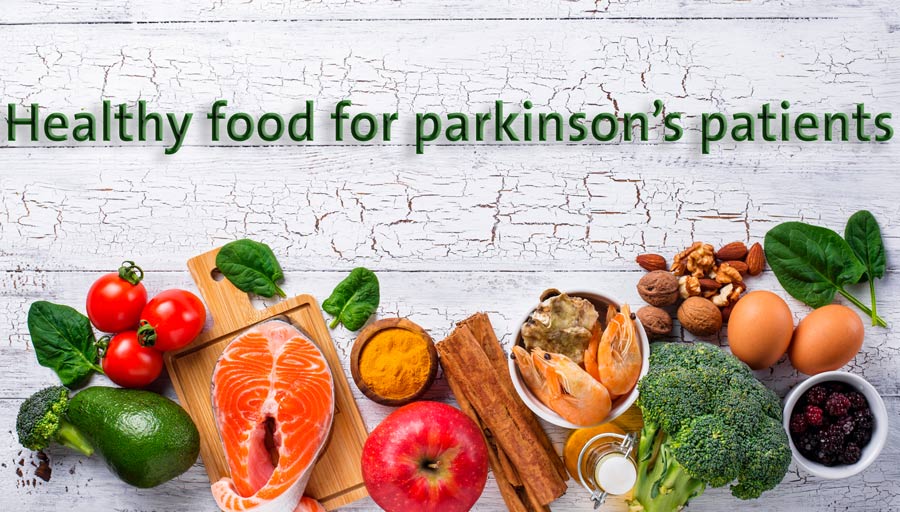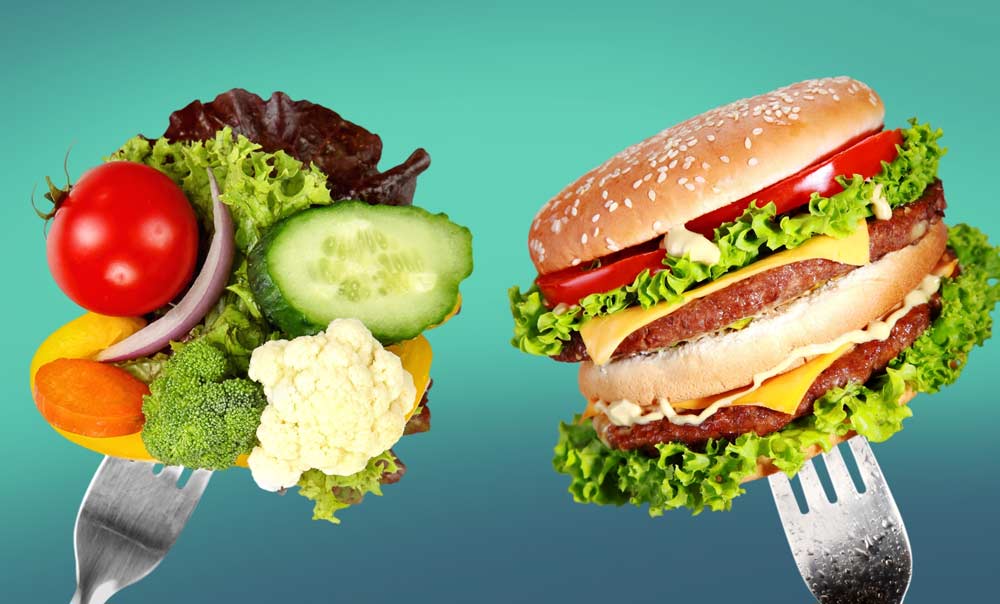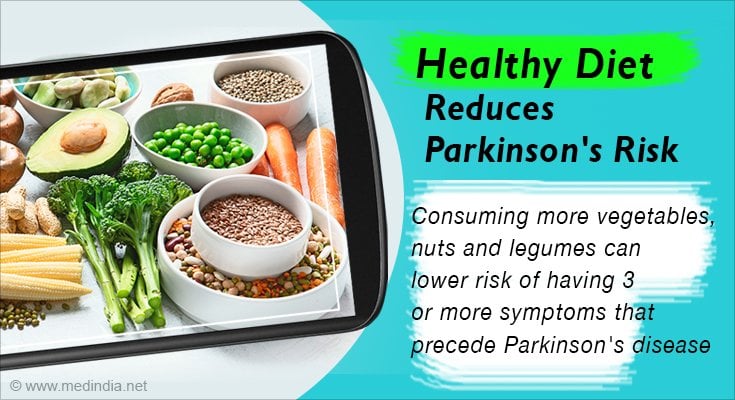Ketogenic Diet And Parkinsons Disease
In recent years, the Ketogenic diet has gained a lot of interest for its positive effects across a variety of conditions. The Ketogenic diet was first used as a treatment for epilepsy in the 1920s. Over the past two decades, there has been a burst in research and in the use of the Ketogenic diet for many conditions.
There is supportive evidence from research studies that the Ketogenic diet can offer symptom relief, and also protect the nerves in neurodegenerative conditions like Parkinsons disease.
Foods To Avoid With Parkinsons
The medication Levodopa is a protein building block, so it competes with other proteins for absorption. Limiting your protein intake early in the day and taking medication 30 minutes before or 60 minutes after a meal allows the drug to reach the small intestine and absorb faster. Levodopa should be taken with 4-5 ounces of water to increase absorption. Consider saving your meat, fish and cheese servings for dinner and having vegetable and carbohydrate meals at breakfast and lunch.
Fava beans contain a natural form of Levodopa and, especially in large doses, may cause problems for some individuals with PD. Kidney beans, split-peas, navy beans and lentils are safe alternatives to fava beans that provide rich amounts of fiber, which can help those experiencing constipation.
Low blood pressure is a symptom of Parkinsons and a side effect of some medications. Raising fluid and salt intake will boost blood pressure, but talk with your physician, especially if you have heart or kidney problems. Increase cold fluids such as water and Gatorade and limit alcohol, caffeine and hot liquids, which encourage dehydration and low blood pressure. Eating frequent, small meals can also smooth blood pressure fluctuations.
There Are Several Ways The Ketogenic Diet Can Benefit Parkinsons Disease:
- Neuro-Protection
The ketogenic diet has largely been used to treat epilepsy. It has been recognized that there are strong neuroprotective effects with the diet.
Nerves are, in large part, made up of fat. When healthy fat intake increases immensely, the building blocks that the body needs to repair and protect the nerves are available to use.
Ketones themselves are also a part of the neuroprotection piece. Ketone bodies act on the nerve cells to protect them from degenerating. In animal models with Parkinsons disease, the ketogenic diet improved motor function and increased nerve cell survival in the substantia nigra of mice exposed to neurotoxins.
- Anti-Oxidation
Glucose and the normal metabolism of glucose causes metabolic oxidation, or stress, on the cells. Ketones, however, have antioxidant activity and protect the body from oxidative damage.
Parkinsons disease has a key factor, which is oxidative damage to the substantia nigra. This oxidative damage contributes to the degeneration of the nerves, which then leads to Parkinsons symptoms. Since ketones themselves have antioxidant activity, they can help prevent continued oxidative damage to the brain and nerves.
- Improved Energy Production
You May Like: Parkinson’s Disease Treatment Physical Therapy
And The Protein Redistribution Diet
Until now, for Parkinsonians with on-off syndrome, the best dietary advice was to follow a Protein Redistribution Diet . The PRD allowed for the Recommended Dietary Allowance of protein , 0.8 grams of protein per kilogram body weight, approximately 45-55 grams for an average weight female or male. The catch was that it limited the total daytime protein intake to only 7 grams. Thats the amount of protein in less than one cup of milk or one slice of deli meat. The remaining protein allowance was to be consumed in the evening meal.
There are several drawbacks to the PRD. It is very difficult to plan and to follow. Daytime meals would contain mostly fruits and vegetables, but omit dairy products, eggs and meats. Costly low protein products, such as breads and pastas are essential as is a good repertoire of low protein recipes. High motivation is essential to adhere to this rigid plan.
Furthermore, once protein intake increases in the evening, patients typically turn off. The logical solution is to self restrict protein, resulting in an inadequate total protein intake and potentially malnutrition. In addition to a protein deficiency, patients are more at risk for inadequate calcium, riboflavin, vitamin D and iron, the consequence of reducing dairy products and meats.
In contrast, the 7:1 diet allows for normal daytime meals.
Foods And Fad Diets To Avoid With Parkinsons

While eating a Mediterranean diet can help with Parkinsons, you need to make sure you are also avoiding the foods and fad diets that are detrimental to your health and may exacerbate your Parkinsons symptoms.
Below is a list of some foods you should avoid eating or limit the amount you eat for Parkinsons:
- Hard to chew foods
You May Like: Inhaler For Parkinson’s Disease
Add Medication For A Winning Combo
Diet and exercise are important for managing PD, but dont forget about medications. Take them regularly and exactly as your doctor prescribes.
If you tend to forget your medication, set an alarm to remind you. You can also use a pillbox thats labeled with days and times of day. Take your meds on a set schedule, dont skip doses and dont double dose, says Dr. Gostkowski. When youre diligent about taking your medications and following a healthy lifestyle, youll feel your best.
Eating When Youre Tired
If you donât have energy for meals later in the day, you can:
Pick foods that are easy to fix, and save your energy for eating. If you live with your family, let them help you make your meal.
Look into a delivery service. Some grocery stores have them. Or you can check if you might be able to get food delivered from your local Meals on Wheels program for free or for a small fee.
Keep healthy snack foods on hand, like fresh fruit and vegetables or high-fiber cold cereals.
Freeze extra portions of what you cook so you have a quick meal when you feel worn out.
Rest before you eat so you can enjoy your meal. And eat your biggest meal early in the day to fuel yourself for later.
You May Like: Parkinson’s And Hearing Loss
Fad Diets To Avoid Or Be Skeptical Of:
There are many fad diets out there that someone with Parkinsons should be skeptical of such as the Caveman diet, Carnivore diet, Whole30 diet and many more. While these new diets claim to be the best thing since sliced bread many of them are unsustainable and not healthy for you in the long run.
Something else to watch out for are diets specific for Parkinsons. Thats right, you are reading a Parkinsons diet blog warning you of the dangers of Parkinsons specific diets. We do this because there is a lot of small studies out their claiming a specific food or nutrient will help with your Parkinsons while the truth is there really isnt any strong evidence for any of it. Worse yet, some of these foods or nutrients when taken in excess quantities can do more harm than good. The only real evidence-based diets that are shown to be good for Parkinsons are general healthy diets that work for everyone regardless of Parkinsons. The Mediterranean diet is one of the healthiest diets out there, which is why we recommend it to those with Parkinsons.
*In the past this blog has recommended specific healthy nutrients or foods for Parkinsons, we have since updated the blog to better reflect scientific consensus
Visit Your Doctor More Often
The last and the most important advice we could give is to see your doctor often. Talk to your doctor about your conditions and figure out whether you need to make some changes in your diet to improve your symptoms.
Disclaimer: The information shared here should not be taken as medical advice. The opinions presented here are not intended to treat any health conditions. For your specific medical problem, consult with your health care provider.
Don’t Miss: Heavy Metal Poisoning And Parkinson’s
Eat Plenty Of Protein But Not With Levodopa Medications
If youre taking a levodopa medication, your doctor may tell you to avoid protein when taking your meds. Both animal and plant protein can interfere with the absorption of levodopa medications.
But you should still eat plenty of protein. Just be strategic with the timing. Dont take levodopa medications with meals, Dr. Gostkowski says. Its best to take it on an empty stomach either 30 minutes before your meal or an hour after eating.
If you get nauseous from the medication, eat a small amount of starchy food with it, such as crackers. Make sure whatever you eat with your medicine doesnt have protein. Its a misunderstanding that people with Parkinsons should avoid protein, Dr. Gostkowski says. You definitely need protein in your diet. Just dont eat it when youre taking your levodopa medication.
Food Items You Can Easily Consume
Recommended Reading: Adaptive Devices For Parkinson’s Disease
Special Diets For Parkinsons
Certain foods, vitamins or special diets are sometimes recommended as being beneficial if you have Parkinson’s. You should always discuss any special food or diet with your doctor or dietitian as there is generally no scientific evidence to support these.
Broad beans are reputed to help Parkinson’s symptoms as they contain levodopa but unfortunately this is in such small and variable amounts that they cannot be effective. The quantity that would necessary in order to obtain an effective amount of levodopa would probably cause illness or other side effects.
A Complete Parkinsons Diet Guide

When living with Parkinsons, diet can help you stay healthy and may help with some of the symptoms. Eating a healthy diet will lead you to not only feel better but will also lead to more likely living a longer and more full life.
Before we get started it is important to say that the only evidence-based diets that are shown to be good for Parkinsons are general healthy diets that work for everyone regardless of Parkinsons. The Mediterranean diet is one of the healthiest diets out there, which is why we recommend it to those with Parkinsons.
So, with that said here are some tips and foods you should consider including in your diet if you have Parkinsons.
Don’t Miss: Fever And Parkinson’s Disease
What Exactly Is The : 1 Diet And How Is It Planned
The 7:1 diet balances carbohydrate and protein, allowing for 7 parts carbohydrate for one part protein. Each meal and snack is planned in this ratio for best results. The total number of grams of protein from each of the food items to be eaten at the meal is calculated. This is determined by reading the food labels or consulting lists of protein content of foods. Based on the amount of protein at that meal, the number of grams of carbohydrate needed is calculated. For example, if 10 grams of protein is included at breakfast, 7 times that amount or 70 grams of carbohydrate needs to be included at breakfast as well.
Protein is found in a wide variety of foods. Foods highest in protein include milk and other dairy products and meats . But even starchy foods such as breads, dried beans or peas, grains and cereals have protein which needs to be accounted for. They are, however, relatively high in carbohydrate.
Foods high in carbohydrate and low in protein include fruits and juices, sugar and syrups, sorbet and sherberts, soda and other sweetened beverages. These can be added to your meals to help shift the balance to 7:1. A rule of thumb is to keep meat and dairy portions small and fruit/juice and starch servings large to help improve your ratio.
Foods To Avoid In A Parkinsons Disease Diet
If your goal is to maintain overall health with Parkinsons disease and it should be you should avoid or reduce your intake of some of the same potentially harmful foods as people without the condition.
For example, a diet with lots of sugar can add too many calories and provide your body with too few nutrients. It can also contribute to tooth decay and increase your risk of diabetes.
In addition, foods high in salt and sodium content can increase the risk of high blood pressure, heart attack, and stroke. According to the American Heart Association, some of the saltiest foods in typical diets include:
- Breads and rolls
- Cold cuts and cured meats
- Burritos and tacos
Most of our patients have problems with low blood pressure, due to issues with autonomic nervous system function in Parkinsons disease, Subramanian adds. So in some cases, we recommend a little extra salt in the diet, or even energy drinks, to boost blood pressure.
Either way, you should check with your doctor about taking appropriate dietary steps to manage blood pressure along with Parkinsons disease.
Also limit foods high in calories and fat, particularly saturated and trans fat, which can increase your risk of heart problems as well as certain types of cancer and make it more difficult for you maintain a healthy weight.
You May Like: Any New Treatments For Parkinson’s
Food Water & Supplements: Does Nutrition Play A Role In Pd Symptoms Or Progression
In this 1-hour webinar Dr. Laurie Mischley describes diets associated with the risk of developing PD and evidence nutrition plays a role after diagnosis. The risks and benefits of popular diets are reviewed as well as obstacles to eating . Convenient, cost-effective, healthy dietary suggestions are provided. Calorie restriction, intermittent fasting, and the role of dietary supplements are discussed.
Ketogenic Diet Positively Impacts Parkinsons Disease
Parkinsons disease is a chronic disease that affects a part of the brain called the substantia nigra, the nerves, and the nervous system. Anything that can protect or add health to the brain, the nerves, and nervous system can benefit individuals diagnosed with Parkinsons disease.
In a study of a small sample of Parkinsons disease patients, there was a 43% improvement in the Unified Parkinsons Disease rating scale following 1 month of implementing the ketogenic diet.
Also Check: How To Confirm Parkinson’s Disease
Eat Well Stay Well With Parkinsons Disease: A Nutrition Handbook For People With Parkinsons
This book, written by a registered dietician and PD professional, includes recipes and menus specific to the needs of those with PD – especially those who may be working to coordinate meals with medication timing, nausea, constipation, weight loss, protein timing and more.
Check your local library, or inquire at any bookstore.
Shopping And Preparing Meals
Careful planning can make shopping and preparing meals far easier. Keep a good range of foods in your cupboard and freezer that have a long shelf life as these are always a good back up if you are unable to shop as planned.
- Plan meals in advance and write a list of the ingredients before going to the shops, or ask someone to buy ingredients for you.
- Think about how long you can stand preparing your meal and dont decide on a menu that will take longer to prepare than you can cope with.
- If taking the trouble to cook a meal that can be frozen for other days then remember to double or treble the quantity so that you have a few quick and easy meals another time.
- Make use of ready prepared meals as they can be simply reheated and can save on electricity or gas as well as your own energy. Remember that frozen and tinned vegetables and fruit can be just as nutritious as fresh.
- If you like a sleep during the day, take a flask with you so you can have a hot drink when you wake up without going to the kitchen.
- If you do not own a microwave consider buying a small one as meals or snacks can be very simply and quickly cooked or reheated this way.
Recommended Reading: Driving Test For Parkinson’s Patients
Combine Exercise With Diet
Dr. Gostkowski says if you want to feel your best, combine a healthy diet with exercise. Research has shown that regular exercise can improve PD symptoms.
Do exercise that raises your heart rate, Dr. Gostkowski says. Aim for about 30 minutes a day, five days a week. Dont worry about specific exercises. Do an activity you enjoy, as long as it gets your heart rate up. Try brisk walking or biking or more advanced exercise for veteran athletes. I recommend seeing an occupational therapist. They can tailor an exercise program to your needs.
Foods Containing Saturated Fat And Cholesterol

Some studies suggest that dietary fat intake may increase the risk of Parkinsons.
Although having a higher intake of cholesterol can elevate a persons Parkinsons risk, having a higher intake of polyunsaturated fatty acids may reduce the risk.
Therefore, a person with Parkinsons may wish to reduce their intake of cholesterol to help control the symptoms of the condition. They may also wish to reduce the amount of saturated fat in their diet.
However, further studies are required to explore the link between dietary fat and Parkinsons.
You May Like: What Kind Of Pain Is Associated With Parkinson’s